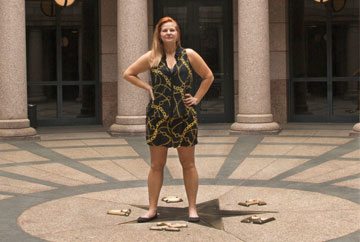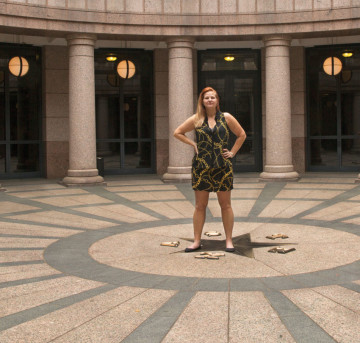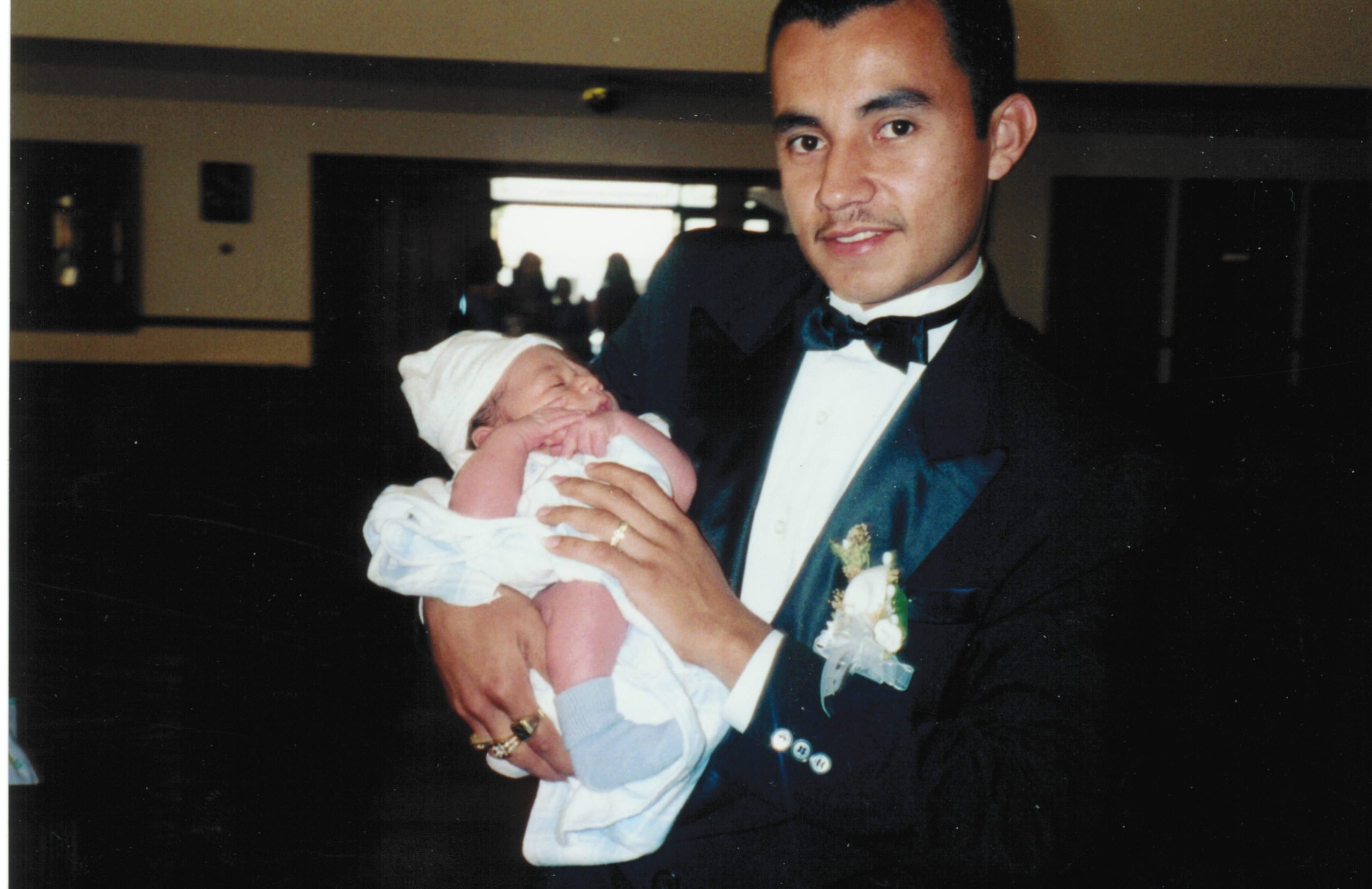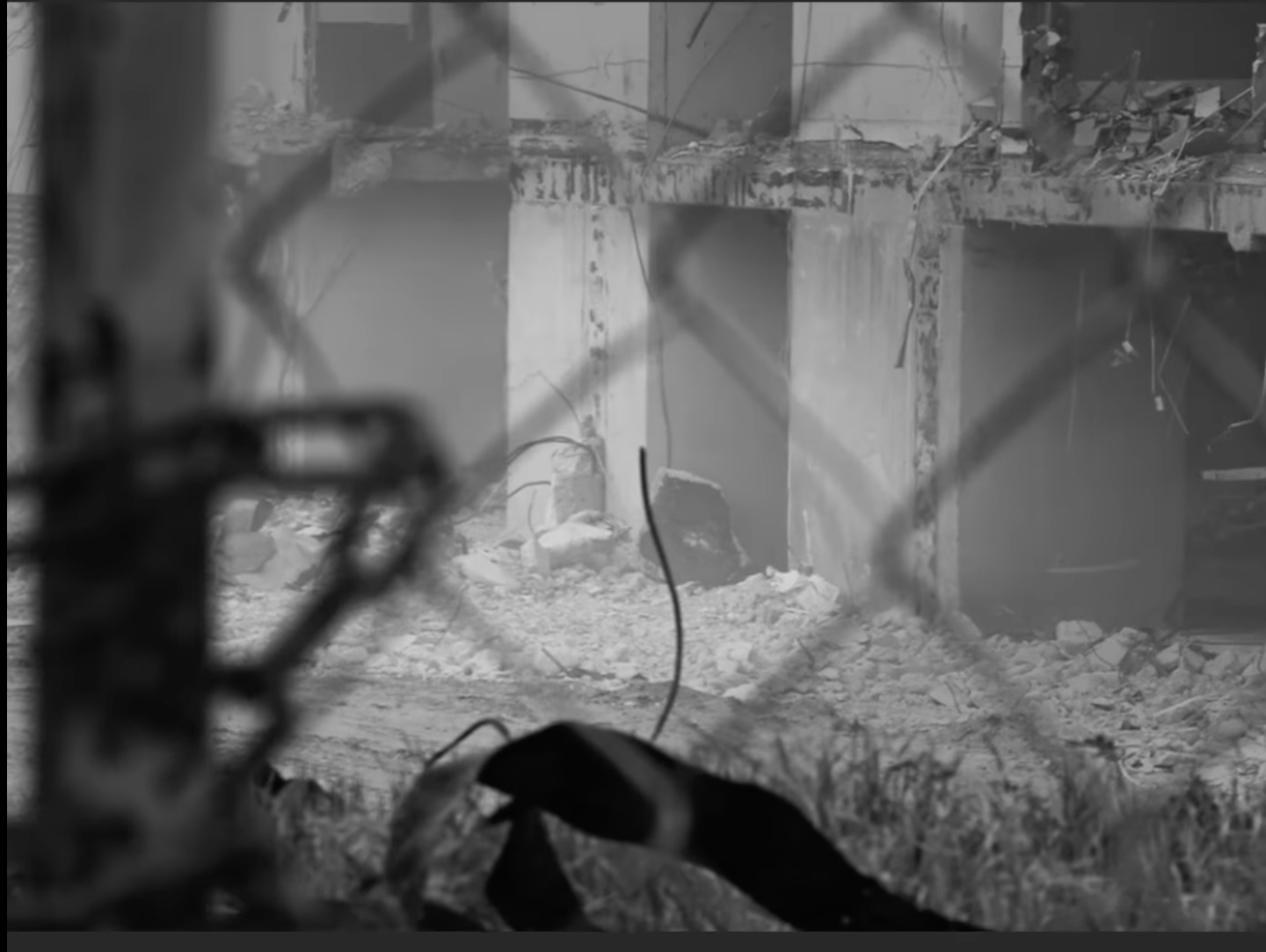
Direct Quote: An Inside View

A version of this story ran in the May 2015 issue.

Lauren Johnson is a 38-year-old Criminal Justice Advocacy and Mobilization Fellow with the Austin-based nonprofit Grassroots Leadership. She’s also a member of the X-Offenders Council and the Travis County Reentry Planning Council, as well as a board member and participant with Conspire Theatre, which works with currently and previously incarcerated women to tell their stories.
“There’s this story that I tell a lot. Back in 1996 there was a Personal Responsibility and Work Opportunity Act. Clinton passed it through, and in the last minute they tacked on a provision that placed a lifetime ban on people with drug felonies from getting food-stamp assistance. In 2008 my husband got laid off. He and I both have felony drug convictions. We went and applied for food stamps, they hand me a card: ‘This is for your children.’
“During the 2013 session, Cindy Eigler, who works for [anti-incarceration advocacy group] Nation Inside, asked me if I’d talk to some of the legislators. So we set a date to go to the Capitol, and she took me into the first office. She introduced herself: ‘Hi I’m Cindy Eigler. I want to talk to you about this bill and why we support it,’ just this very professional capacity. Then she had to leave. So I went to the next office, and I just kind of followed her suit. ‘Hi my name’s Lauren Johnson. I’m here to talk to you about this bill, and I want you to know why I support it.’ The first office, the legislator wasn’t there, but the guy’s chief of staff, he couldn’t wait for me to get the hell out of his office. He also said something along the lines of, ‘Well, I guess our concern is, what’s to stop these people from just living on these food stamps and not making an effort?’ ‘These people.’ I said, ‘Well, if you talk to him and see where he stands, I could come back.’ He said, ‘Give me a week.’ So I went back. And when I went back I said, ‘The reason this is important to me is because I’ve been this person. I have a criminal history and my husband does too, and this is what we went through. And it dawns on me that the people who really need this help are too busy trying to survive to be thinking about coming up here to talk to you. They’re trying to make it from one day to the next, and changing the law is something that they aren’t thinking about. So I don’t need food stamps. But I’m here to fight for the people who do.’
“I left that office different. That stigma and that shame that you carry from having a criminal history and having been a drug addict and having been in all these deep, dark places really kept me down. Walking out of that office that day it just dawned on me that, you know, owning a house and having a job and driving a car and whatever, all these things I do every day aren’t a big deal. People do all these things every day. Millions of people all over the world get up and go to work and fight for things and are activists, but when you take into account where I came from, that’s where the story’s got the power, right? That’s what makes it more resonating. So doing the stuff with Conspire gives us the opportunity to change people’s perceptions and to have that dialogue, to have that human connection. Because everybody loves a good comeback story, right?”


